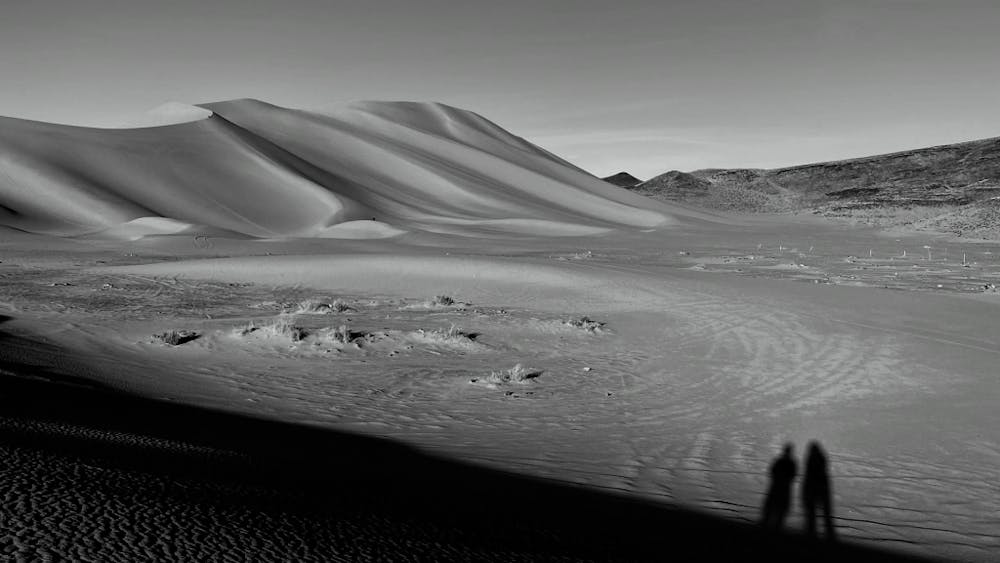On March 25, experimental & documentary arts MFA student Emily MacDiarmid premiered her thesis film, “Approved for Release.” The 20-minute documentary is a visual journey based on a government transcript of an astral projection study. In 1984, the United States Defense Intelligence Agency conducted a psychological experiment in which the participant attempted to explore a distant place and time — the planet Mars in 1 million B.C. — without physically traveling. When MacDiarmid found the transcript, she found an opportunity to combine her seemingly contradictory interests: science fiction and documentaries.
“I’m definitely interested in topics that are rooted in reality but seem to be from fantasy worlds,” MacDiarmid wrote in an email. “I also like work that begins in an archive. This entire project came from a single government transcript and became this film. There’s a lot to research and uncover in the archives.”
The transcript itself — a reading of which comprises the audio of MacDiarmid’s film — captured the surreal mental trip to the planet of war. Throughout the study, the experimenter would give the participant a pair of coordinates, each of which was followed by his detailed visions of the location. In addition to disorienting deserts and mysterious pyramids, the subject described visions of tall, thin shadows of people creeping across the planet. This filmmaker balanced such fantastical descriptions with black-and-white images and videos of her hometown in Nevada.
“I needed to film in a place that had the feeling of being desolate and had an opportunity to distort visuals,” MacDiarmid wrote. “Much of the transcript involved dust storms, basins, pyramids … It seemed meant to be because my home state of Nevada had all of that. In general, though, I’ll always go where the story is.”
While the location may have provided the basis for these visuals, it was MacDiarmid’s investigative work and editing techniques that made the film simultaneously compelling and tranquil. She created double exposures using a mirror and presented multiple scenes in one location, turning a personal, transcendental experience into something that can be universally understood.
“A lot of my [past] video work involved interviews, visuals of historical documents, and archival footage,” MacDiarmid wrote. “I made sure the audience had all the information they needed to understand the story. But with this project, I wanted to present a piece that left space for questions. I think the great part about being in an experimental and documentary arts program is the opportunity to consider the many ways work can impact an audience.”
MacDiarmid successfully created a complex film that encourages the audience to think about both the ways in which the mind can be distorted as well as how people describe geologic turmoil, even decades before it was frequently discussed in the media. As much as her short film explores the unusual, often unheard of experiment, it also speaks to the current environmental destruction we are experiencing on our own planet.
“I think this film is very layered,” she wrote. “I found that part to be a great opportunity to think about what we were experiencing on Earth. I thought, if he was imagining a vision of Mars, could he have also been reflecting on Earth? His account of a failing environment and people sleeping through storms wasn’t far off from what we are all experiencing now.”
“Approved For Release” will be shown again April 14 at 7 p.m. in the Rubenstein Arts Center’s Film Theater.
Get The Chronicle straight to your inbox
Signup for our weekly newsletter. Cancel at any time.

